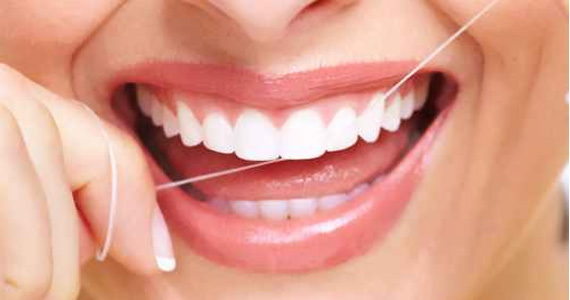In traditional dentistry, when repairing teeth we are taught to necessarily destroy a lot of healthy tooth structure to get to a decayed area and repair it, or cut the tooth completely down in order to place a cover (crown) or partial crown over a tooth to keep it from breaking in the future. In doing so, the pulp (nerve) inside the tooth becomes traumatized, often times resulting in pulp death requiring either a need for extraction or root canal treatment.
The word "Biomimetic" is derived from two terms: "biology," the science of life or living matter in all its forms, and "mimic," to imitate or copy. With the advent of adhesive "bonding" technologies in dentistry over the past few decades, materials and techniques have been developed that allow for the removal of almost no healthy tooth structure, followed by adhering tooth-colored material onto or within the tooth removed decayed or missing tooth area that both strengthens and mimics both the form and color of the remaining healthy tooth. Depending upon the individual needs of a tooth, it can be repaired either with bonding material applied directly to the tooth, or with conservative inlays/onlays (partial repairs within or over the tooth) fabricated in a dental laboratory.
Biomimetic Dentistry could be therefore be described as "the use of modern science to provide conservative restorative treatment that gives the best chance of preserving the integrity, form, esthetics and function of a natural tooth."
Yes, we do take most PPO insurances. We are an out-of-network provider’s office. We will work with you to make sure you get the best of your insurance benefits, while getting the right optimal treatment.
Absolutely, cosmetic and restorative dentistry is performed at our practice. Our great attention to details, experience, and knowledge in dentistry, combined with our holistic approach and using the most biocompatible material suited for every individual, is a routine practice at Holistic Dental Arts.
We very often get asked this question and we thought it would be best to get to the bottom of this. The quick answer is we don’t know until after the consultation appointment, reason being:
- The size of the mercury filling varies; It can be small. medium, or large.
- The surfaces covered by that filling vary; It can be one surface, two, three, or four surfaces.
- The presence of decay around the old amalgam filling; It can be initial, or moderate, or severe.
- The condition of the tooth and the presence of cracks, chips, root canals, etc.
- The condition of the neighboring or opposing teeth.
- The condition of the rest of the teeth.
Those are a few of the things taken in consideration when evaluating the best restorative options. Other factors are considered too, such as oral hygiene, or if the patience grinds/clenches their teeth, the prognosis of the tooth, and so many more. Giving an estimate over the phone would be impossible. More often than not, it turns out to be useless or wrong.
Instead, we will provide you with all of the options and costs, explain the risks and benefits, and we will do our best to put our many years of experience at your service and help you make the best decision to ensure that your teeth are properly treated and restored.
We offer CareCredit. Patients can apply online here


